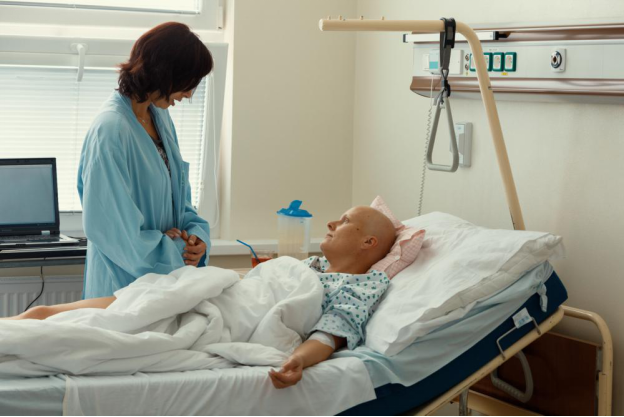New Guidelines for Doctors Regarding Pain Management for Cancer Patients

Pain is a common symptom for many medical conditions. According to Medical Director and Pain Management Specialist, Dr. Nathan Nuefield, “patients often find out they have cancer because of pain.” The pain they experience is what forces them to seek medical help.
Pain in Cancer Patients
Unfortunately, cancer and pain go hand in hand. The American Cancer Society states that a large portion of the cancer community (50-70%) will experience uncontrollable pain at some point during their treatment. It’s intense and a lot of times, unbearable.
The pain may be uncontrollable, but in most cases, it can be managed using specific medication. Pain that is left unmanaged will significantly deteriorate a patient’s quality of living and hinder their recovery from various cancer treatments.
The type and intensity of the pain is dependent on a number of factors including the stage of the disease, the treatment the patient is undergoing, the different regions the cancer has spread to, and many other causes.
Managing Pain in Cancer Patients
Despite the number of patients it affects, the pain is often undertreated. Research from the National Cancer Institute found that cancer patients choose to hide their pain symptoms out of concern that it may stop their treatment.
Other patients may be vocal about their pain but don’t disclose its intensity. Nuefield claims that as a group, cancer patients make complicated patients due to their hesitancy to openly discuss all that they are experiencing.
Pain Management – More than Narcotics

While it’s true that most pain in the body is treated with narcotic such as opioids, there are other medications that have also proven to be effective, some of which are available over-the-counter. These include nonsteroidal anti-inflammatories (such as ibuprofen), acetaminophen nerve block therapies and interventional therapies.
Nuefield claims that certain minor procedures and injections can provide patients with pain relief without risking their wellbeing, making them a better alternative to narcotics. In some cases, they are able to make a substantial difference in a cancer patient’s life.
That’s not to say that narcotics like opioids and other narcotics should not be used at all; they definitely have a place in management; however, they can be very addictive, and patients are prone to abusing them.
Cancer patients struggle to quit the use of narcotics even after they’ve completed their treatment. The American Society of Clinical Oncology (ASCO) found that around 40% of the country’s cancer survivors continue to take pain medication even after they’ve been treated.
Bearing in mind that the term “cancer survivor” is used to describe former cancer patients that are cancer-free 5 years after their initial diagnosis, the adverse effects of opioids and other narcotics is clear to see.
ASCO’s New Guidelines
As a response to the issue of narcotics’ abuse by cancer patients, the ASCO released new guidelines for their pain management programs. These guidelines are specifically meant for cancer patients.
Here’s an overview of the new guidelines:
- Check for pain during every visit
- Determine the risks associated with the opioids being used in pain management and use universal precautions
- Consider the use of interventions and other minor procedures that may provide pain relief. Procedures like physical therapy, acupuncture, body massages and even psychological approaches can be effective
- Use OTC pain relievers rid reduce chronic pain and enhance physical functionality
- For patients that don’t positively react to conservative pain management, prescribe a trial period of opioids and monitor their response. Be selective, opioids should be reserviced for those experiencing unbearable pain that cannot be relieved with conservative pain management solutions.
Manage the Risk of Abuse
As opioid addiction in the country spreads, government agencies are forced to take notice; opioids that a have a tendency to be abused are under heavy scrutiny. The ASCO guidelines target the issue head on but with that being said, they can be keeping certain patients from pain management drugs that are detrimental to their quality of life.
Pain management doctors are faced with the difficult task of determining what to prescribe their patients. Some patients may take excessive amounts of the medication while others may consciously take less out of fear of addiction.
The majority of patients will experience addiction during pain management meaning skipping their day’s dose will cause them pain; they become highly dependent on opioids.
A good pain management doctor understands the difference between dependence and addiction. Pain management doctors are advised to take a long-term approach to a cancer patient’s care plan. Their goal should be to reduce the pain and enhance the patient’s quality of life during treatment.
When it comes to cancer patients, restoring hope and improving psychological health is a better alternative than opioid addiction.
Are you a health institution looking for qualified pain management doctors and CRNAs? Medical Associates Consulting is an established healthcare recruitment agency that provides medical staffing services for hospitals and private practices from all over the country. We match pain management doctors and CRNAs with healthcare institutions that fit their needs.
Apply now and start your job search. Contact us for more information on our services.